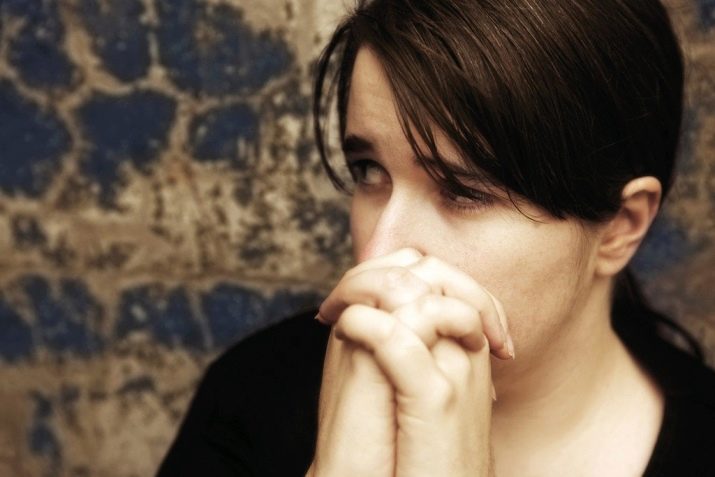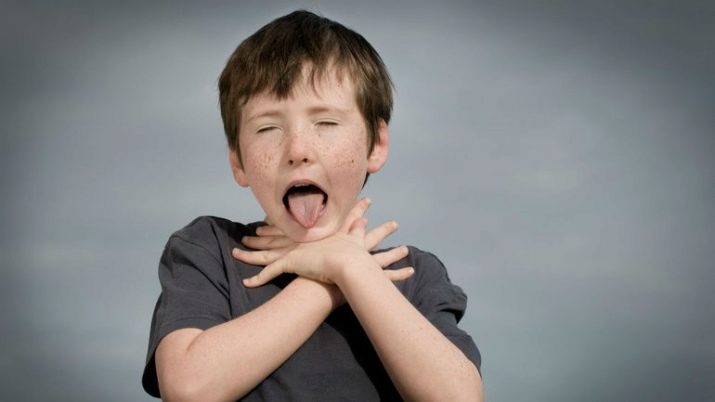All about phagophobia

Human fears are varied and multifaceted. Sometimes they affect such natural areas of our life that most people simply do not think about. Eating is pleasant and natural, essential to sustaining life. But there are people for whom the process of absorbing food is painful and unpleasant, because they are afraid that they may choke and die. They are phagophobes. A specific phobia is not so rare, and it is quite possible that among your acquaintances there are such people too.
What it is?
Phagophobia or psychogenic dysphagia is a pathological, irrational fear of eating because it is associated with the swallowing process. Phagophobes complain of difficulty swallowing, but otolaryngologists do not find compelling physiological reasons - the throat does not hurt, there are no neoplasms. Neurologists do not find reasons either - swallowing reflex is normal. Therefore, phagophobia is classified as a mental disorder of the phobic type.
Phagophobia is considered a specific food phobia. Sometimes psychiatrists refer to it as an eating disorder, because one way or another a person changes his attitude towards food intake - either refuses it altogether, or switches only to soft food, to liquids in order to exclude an accident and not choke on solid foods.
This fear seems to be rare. In fact, up to 6% of adults consult an ENT for complaints of difficulty swallowing. And in about half of the cases, medical specialists do not find any inflammatory processes in the larynx or problems with the work of the gastrointestinal tract in such patients.A large part of these 3% of people are phagophobes. People with this disorder usually have a significantly increased general anxiety background. Lack of proper treatment, ignoring the problem can lead to rather serious consequences in the future.
A person who restricts his diet suffers from a lack of a variety of nutrients, minerals, vitamins, which does not affect the work of all organs and systems of his body in the best way. Severe mental illness can lead to cachexia (exhaustion) and death.

Phagophobe becomes hostage to two powerful emotions - on the one hand, there is a natural need for food, on the other, a strong fear of eating it. It is impossible to live a normal life with such a dilemma, you have to revise its entire way of life, plan your routine in such a way as to always have access to the type of food that is considered acceptable (liquid, soft, shabby, and so on).
A person has to refuse invitations to restaurants, cafes, business dinners and romantic dates, since he cannot eat in such places. To hide your "strangeness" from others, The phagophobe has to significantly limit social contacts, because it is much easier to limit the social circle than to explain to everyone in it why an adult eats only baby food from a pharmacy.
It is also difficult to visit friends for a phagophobe, because guests are usually treated to something. For the same reason, it is necessary to reduce contacts with relatives. All this forces the patient to carefully think over his menu, to experience anxiety, tension, depression. A critical attitude towards oneself with phagophobia persists, a person is well aware that he is afraid of solid food or food without any good reason at all, it is irrational, but it is usually impossible to cope with fear with an effort of will.
It is believed that Nikolai Gogol suffered from phagophobia at the end of his life. The writer also had other mental disorders, but after contracting malaria in 1839, the genius developed a fear of eating, and he could refuse food for weeks, limiting himself only to water.

Causes
Experts believe that the main cause of phagophobia is traumatic memories that occurred during childhood. Most often, these are situations in which the child choked while eating so much that he had a feeling of suffocation. An acute lack of oxygen caused a panic attack, which forever cemented in the subconscious the painful connection between the process of swallowing and the emergence of fear.
It is believed that there is a certain hereditary predisposition. The basic factors of the nervous system are transmitted from parents to children, therefore, a child's biochemical processes in the brain can be hereditarily disturbed - a deficiency of neurotransmitters often provokes a wide variety of anxiety and phobic disorders.
Affects the likelihood of developing the disorder and temperament. Fearful, shy, suspicious children, when they get into a traumatic situation, may begin to experience constant fear afterwards. The parental influence is great: if the mother often pulls the child down for food, warns against trouble ("you can choke"), if a parent suffers from such a phobia, the child may accept the parental model on faith, and the fear of choking on food gradually develops.

Symptoms
Mental disorder manifests itself on two levels.
- Psychological changes are quite striking, characteristic - a person tries to avoid what scares him so. He may refuse to eat and only drink or refuse thick and solid food, because when trying to eat, a spasm of the larynx occurs, it becomes impossible to swallow. Anxiety and fear can arise both at the sight of a package of crackers, and at the very thought of solid food.
- At the physical (vegetative) level the disorder is manifested by an increased heart rate, increased sweating, blanching of the skin, breathing becomes shallow, can manifest itself in severe cases of dyspnea (difficulty breathing, episodes of suffocation). The person becomes fussy, nervous, irritable. Connection with the outside world may be temporarily lost, a feeling of unreality of what is happening appears.
Phagophobes often suffer from sleep disorders - they are tormented by regular episodes of insomnia, shallow sleep, intermittent, anxious. In severe cases, a panic attack may occur when swallowing. In most cases, symptoms appear immediately after eating.

Treatment
It is almost impossible to get rid of phagophobia on your own. This should be done by specialists - psychiatrists and psychotherapists. Only if the patient is in close contact with the doctor and has a strong motivation to overcome his fear, it will be possible to talk about favorable prognosis for a cure. Treatment is very important - it will help return a person to a normal lifestyle, to socializing, help maintain his health, and sometimes save his life.
Today, the most effective method is considered psychotherapy. The impact of neurolinguistic programming, hypnosis, as well as cognitive-behavioral therapy allows not only discovering the true causes of fear, if a person does not remember the event that influenced the formation of pathology in childhood, but also change his attitudes, which will help the patient to look at the problem in a new way. which torments him for many years.
Do not assume that the treatment will be quick. The patient and his family will have to be patient, and also carefully follow all the recommendations of the specialist - you need to attend classes (individual and group) without missing, during the treatment, alcohol, drugs, psychotropic drugs should be completely excluded, you need to protect a person from stressful situations as much as possible. In severe cases, inpatient treatment and tube feeding are indicated. In addition to psychotherapeutic methods, medications can be used - pills or injections (at the discretion of the doctor). The most commonly used drugs are antidepressants that provide serotonin reuptake (SSRI). The emotional background against the background of taking medications leveled out, the mood rises, the course of admission is usually from 1.5 to 3 months. But apart from psychotherapy, medication has no effect.


If phagophobia is accompanied by high anxiety, anxiolytic drugs may be recommended to help reduce anxiety. But, according to the general rule for the treatment of phobias, taking such medications, again, is carried out against the background of psychotherapeutic treatment. The patient will also need to independently work on his fear - he will be offered to master the techniques of deep muscle relaxation, yoga or meditation, aromatherapy, a contrast shower, and self-hypnosis techniques will come to the rescue. The projections are generally good.
In most cases, phagophobia, even in its severe forms, is surmountable and curable. In about 7–9% of cases, after the treatment underwent a relapse of the phobic disorder occurs within a year, in other cases it is possible to achieve persistent and long-term remission.









